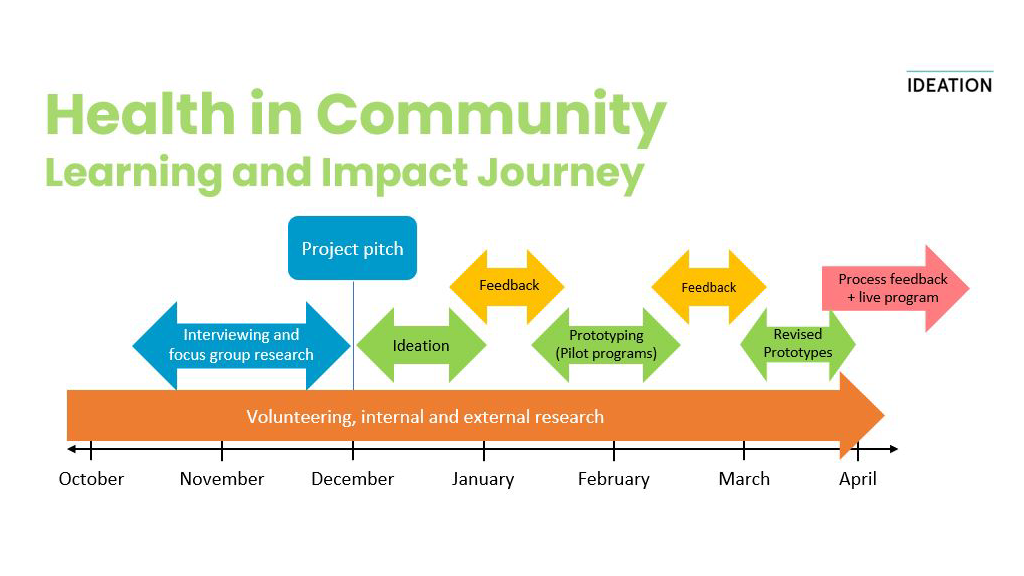Profile:
Human Biology HMB490: Health in Community
An experiential learning course exploring the health-related challenges and social determinants of health in partnership with local community organizations. Lectures and tutorials will support learning of selected biological and social aspects of health and disease, neuroscience, genetics or population health, and the development of scientific knowledge translation skills relevant to the demographics of the community agencies.

Program Details
Instructor / Program Coordinator(s):
Professor Franco Taverna
Profile(s):
External Partners Faculty & Staff Students
Division:
Faculty of Arts & Science
Benefits to Students:
Throughout the placement, students are expected to observe how the organization serves its populations, participate by serving and helping in a meaningful and impactful way, collaborate on a major course project and deliverable that meets an important need of the organization, and learn about becoming effective advocates for vulnerable populations.
Benefits to External Partners and the Community:
Community organizations are able to partner with the University and motivated senior students to provide impact to their organization, members, and the community.
Benefits to the University:
The Human Biology Program can provide a number of valuable and meaningful experiential learning opportunities for students. These curricular opportunities not only develop key academic, personal and career related skills, but also provide a valuable service to the community.
Information for Interested Students:
Visit Human Biology Program website for more information on their courses: https://www.hmb.utoronto.ca/undergraduate/curriculum-course-info/hmb-courses/400-level-course-guide.
Advice for Faculty and Staff Interested in Creating a Similar Experiential Learning Opportunity:
There are many ways to provide a community based experiential learning opportunity for students in courses. These range from major course components, to small but meaningful experiences that nevertheless provide excellent opportunities for students and the community alike.
In addition, my connections and collaborations with the leaders and staff of our course partners and their community members have been incredibly enriching. Indeed, I feel I have grown and learned about health in authentic and invaluable ways that are impossible within the classroom. We have been given the privilege to work closely with community members to the benefit of all of us.
Health in Community Learning and Impact Journey
Details
Partnership Based
Curricular
Unpaid
